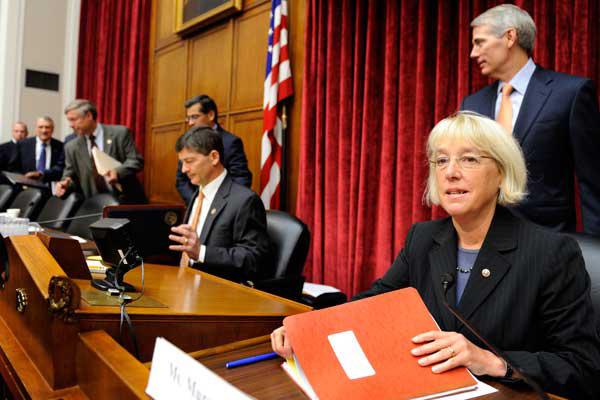The Coming Super Committee Crack-Up

Under any other circumstances, one would expect a technical, lobbyist-dominated group like the Super Committee to do what Congress always does when confronted with a crisis: Kick the can down the road. However, evidence suggests that won't happen this time. Why? Because the only incentives the Super Committee has to get anything done are tragically unequal to the moment.
Originally, the threat hanging over the Super Committee was simple: Either reduce the deficit or trigger a massive set of spending cuts which neither side was happy with - cuts both to entitlements (scaring Democrats) and to defense (scaring Republicans). But is that threat real?
The Washington Post's Jonathan Bearstein reports that "because those cuts won’t be enacted until 2013, there’s a catch to all of that. It means that if the trigger kicks in, the resulting cuts can be undone by the next Congress. And if either party is convinced that it will win in 2012 and control all the branches of government, then it has an incentive to let the Joint Select Committee fail, wait out the clock, and then impose their own preferences after the election."
Small wonder, then, that the GOP's members are less inclined to be cooperative. With a President who looks less popular as the days go by, they have precisely zero incentive to be bipartisan, when unilateral opposition has carried them this far. Moreover, if the Democrats blink this time, as they have so many times in the past, it will only deepen dissatisfaction and unhappiness among their base, and seem badly out of step with the current progressive mood which is embodied by the "Occupy Wall Street" protests. What's worse, a series of politically toxic spending cuts that won't take effect for two years that you can plausibly blame on the other guy, or pushing a plan that will alienate your base and that you will get blamed for? Even to the politically uninitiated, the answer is obvious.
If the Committee were made up of centrist lawmakers, and if it weren't actually ultimately subject to the will of Mitch McConnell, Harry Reid, John Boehner and Nancy Pelosi, these problems might be lessened. However, precisely the opposite is true. Of the Senate Republican members, only Rob Portman appears likely to build a bridge, with Kyl a practiced political infighter, and Toomey a Tea Party firebrand. Democratic Senators like Kerry or Baucus could also be potential sources of compromise, but given that most of the news coming out of the Supercommittee suggests Democratic intransigence on taxes, this looks increasingly less likely. Both sides in the House are lost causes, though Democrats have put up a slightly more partisan roster, and even if a deal were to emerge, there would still be the four leaders who would have to clear it.
And what of those leaders? Reid and Boehner may be practiced dealmakers, but McConnell has recently found his inner firebrand, and Pelosi is famously impossible. Given how unlikely it is that the cuts required by the trigger will actually get passed, this means that at last, the two parties will get their chance to play chicken until one side smashes into the other and showers the American people with fiscal insanity.

